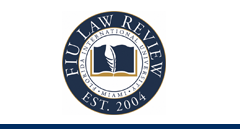Alternate Title
Attorney-fee Shifting Is the Solution to SLAPPing Meritless Claims out of Federal Court
Keywords
anti-SLAPP laws, fee shifting, free speech, first amendment
Abstract
Strategic Lawsuits Against Public Participation (“SLAPPs”) are meritless claims brought against individuals or corporations to silence them for exercising protected speech under the First Amendment. In response to the chilling effects of these SLAPPsuits, State legislatures have enacted anti-SLAPP statutes to quickly dismiss these meritless claims and protect the targets of these suits. These anti-SLAPP statutes have two prominent components: a special motion to dismiss and an attorney fee-shifting provision that is dependent on prevailing on the special motion set forth in the statute. Federal courts sitting in diversity are divided over whether the special motion standards set forth in the statute can apply in federal court because the special motion standard answers the same question as Federal Rules of Civil Procedure 12 and 56. Under Erie, a federal court must apply the state substantive law, but if the state law conflicts with the federal rules, the latter will apply as long as it is valid under the Rules Enabling Act. Florida’s anti-SLAPP statute is unique in that it does not limit the recovery of attorney’s fees to prevailing on the special motion standards set forth in the statute. Thus, under Florida’s anti-SLAPP statute a SLAPP target can use the Federal Rules of Civil Procedure to quickly dismiss a meritless claim and use a relatively unguided Erieanalysis to get an award of attorney’s fees pursuant to the anti-SLAPP statute. Strong use of Twomblyand Iqbal, coupled with the award of attorney’s fees provided in Florida’s statute, can achieve the same effect that anti-SLAPP laws have in state court—but in federal court and without running afoul of the Eriedoctrine.
Recommended Citation
Gleisy Sopena, Attorney-fee Shifting Is the Solution to SLAPPing Meritless Claims out of Federal Court, 16 FIU L. Rev. 833 (2022), https://doi.org/10.25148/lawrev.16.3.12.





